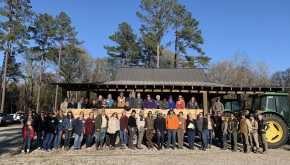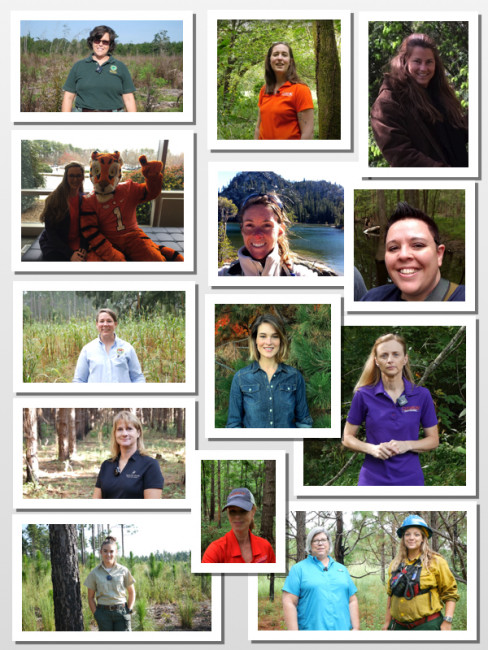
With a new video library available on YouTube, South Carolina WOW is sharing a wealth of information for women landowners!
Take a look--you can access the videos here.
Topics include:
- Management plans
- Prescribed fire
- Conducting a timber sale
- Using a consulting forester
- Cost-share assistance programs
- The cycle of a pine forest
- Selecting pine seedling genetics
- Emerald Ash Borer
- Monitoring forest health
- Knowing your property boundaries and protecting your property
- Managing for wildlife
- Managing your land for pine straw
Background
Janet Watt Steele, Clemson University
The South Carolina Women Owing Woodlands was begun with funding from a Sustainable Forestry Initiative (SFI) Community Engagement Grant to host pilot WOW workshops in SC in 2019 and 2020. The goal of these workshops was to encourage women to take a more active role in the management of their forests, and to become better educated about forest management practices, including those to enhance non-timber resources.
The first WOW workshops were hosted in October 2019 and in March 2020. Both focused on introducing sustainable forestry, wildlife habitat enhancement, longleaf pine restoration, and conservation practices. Female natural resource professionals from 4 federal and state agencies, 4 non-profits, and 2 forest industry companies assisted with the workshop implementation. Each workshop had over 30 participants!
Due to Covid-19, the third workshop had to be canceled. However, this presented the opportunity to instead create a 4-part webinar series entitled “Your Land," with themes including “Know Your Land”, “Manage Your Land”, “Protect Your Land’s Resources”, and “Getting the Most from Your Land”. The video library arose from presentations highlighting forest management and other practices--content that would have been offered during the field-tour portion of an in-person workshop.
Recordings of the live sessions were made available to those who registered, and the webinar sessions averaged 60 participants with an additional 40 participants accessing the session recordings. As with the in-person workshops, all of the participants who completed the webinar series evaluation indicated they gained knowledge in all of the content areas.


